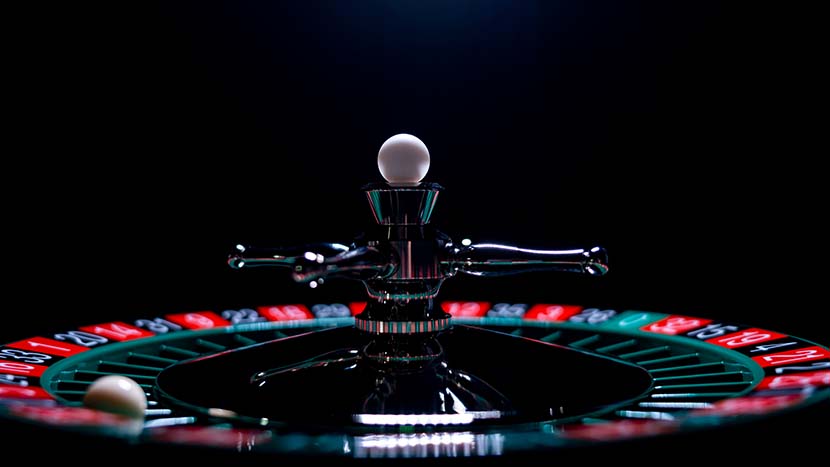Science Behind Online Casino Games
Beating the casino has been the dream of gamblers and bettors since the dawn of time – at least the dawn of casinos. It is a fact that many have tried to overcome the house edge by employing scientific knowledge to win at gambling.

Since we’ve got plenty of iGaming experts who know all the ins and outs of the casino industry, we took a closer look at the science behind online casino games. Here’s what we encountered and what we learned (so far).
The Science Behind Slot Machines
Modern slot machines have the RNG, Random Number Generator, a random number generation engine. Randomness is without a doubt a necessary requirement in roulette as well as in the other operations and activities of the network to guarantee reliable and safe gambling.
After you deposit into the casino without an account and start playing slots, it produces the combination that determines the winner, so that when the lever is activated, the wheels start spinning and the RGN randomly selects the winning numbers. The probability of hitting the prize is one in 262,144.

Another aspect that supports the prizes is the RTP, or Theoretical Player Return. It represents the profitability offered by the machine to the user. If you face a slot machine with an RTP of 98%, in a tiring day, with 100 coins in hand, statistics establish that, at the end, you will most likely have 98 coins in your pocket.
As you can see, mathematics dominates the slots dynamics. If you manage to understand the correct functioning of the same, taking into account the variables involved, you will be able to really take advantage of it.
The Science Behind Roulette
For years people tried to unveil the secrets hidden in the roulette game; in the end it was understood that it was just a matter of physics. To predict the behavior of the roulette wheel and determine where the ball would stop, it was necessary to establish the spinning speed of the system, the deceleration of the wheel; in addition to determining the speed of the ball itself.
All this was only to refine the probability of winning in the game. What was sought was to establish the probable zone in which the ball would stop. The key was to bet on a series of contiguous numbers, to increase the odds of winning.
In addition to the physical sciences, mathematics and statistics, there were parameters linked to defects in the construction of the roulette wheel that caused small imbalances; also the weight of the ball and atmospheric conditions were able to alter the results of the bets.
Compared to the scenarios described above, it has been proven that online gambling is a safe and absolutely random activity. From the most famous websites, the odds of winning remain statistical and you keep the excitement of betting on the surprise of winning a prize.
The Science Behind Poker
Winning a poker game: a matter of fortune or skill? This debate has been going on since the dawn of time. Without a doubt, history is full of beginners who, thanks to unexpected strokes of luck or a good dose of instinct, managed to win big.
However, poker is much more than just a game of chance. Aside from the mathematical skills needed in blackjack, it is hard to imagine winning a WSOP without first having developed excellent skills in probability calculation and statistical analysis.

Of course, the combinations of cards that could come up during a hand are so many that even excellent preparation can sometimes be insufficient. Therefore, it is necessary to know how to read the behavior of the opponents to compensate for the missing information.
However, if this is possible during a game of Texas Hold’Em in a physical casino, things become more complicated when playing online. In this case, there is nothing left but to rely on studying one’s own cards and – although it might seem a bit like cheating – using special software that keeps track of the opponents’ statistics.
The Story of the Young MIT Geniuses
Young MIT students, during a research project, found a way to win money through the lottery. Using their calculation and statistical skills, they were able to determine that, over a period of time, every three months the game would work in their favor.
They established that when the accumulated jackpot reached its ceiling, they had to invest a set amount in tickets, which generated millions of dollars in winnings. They were also able to establish a way to hit the big jackpot in a single attempt. A daring journalistic investigation uncovered the scandal and put an end to another chapter of science vs. chance.

Conclusion – How to Win at Slots, Roulette and Poker
The main casino games differ not only in rules but also in the principles that determine how they work. While winning at slots depends mainly on the case, roulette needs knowledge in the field of physics and poker needs skills of calculation and statistical analysis.
Although science is in fact an important aspect in gambling and the iGaming industry, what’s more important right now is technology. Bear in mind that modern technology uses science to improve the entire experience, thus giving players new opportunities to win at games such as poker, slots, or roulette.
Therefore, if you use your skills or luck at games such as VR games or even live dealer tables, you’ll see that science and technology are a powerful combination that can make you win life-changing prizes.
































































































